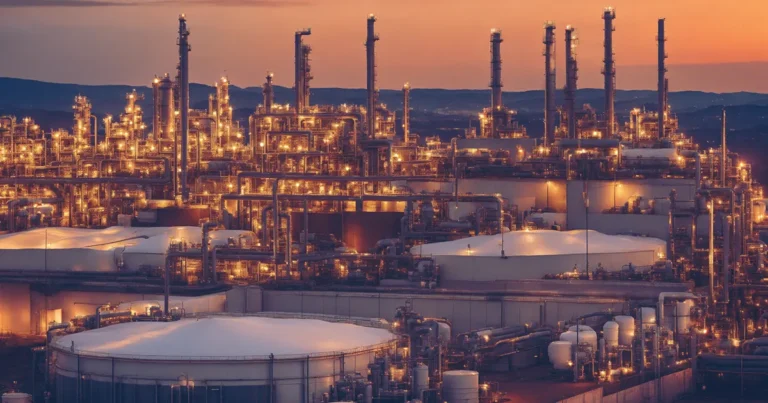9-4-2025 – An Australian heavyweight in liquefied natural gas (LNG) has embraced revolutionary blockchain technology to authenticate its glycol recycling processes. The novel system, orchestrated through a partnership between NoviqTech and Global Resource Recovery (GRR), introduces blockchain-based Proof of Sustainability (PoS) certificates.
The anticipated surge in circular economy practices has caught the attention of market analysts, who project the sector to burgeon from $934.5 billion to a staggering $3.2 trillion by 2033. Asia-Pacific markets are tipped to spearhead this remarkable expansion, as industries worldwide pivot towards verifiable eco-conscious operations.
At the heart of this technological leap lies Carbon Central, NoviqTech’s proprietary blockchain platform, which meticulously records each kilolitre of processed glycol. The system operates on a subscription-based model, with users paying monthly fees plus additional charges for token generation, creating a scalable revenue stream that grows alongside client operations.
“We’re witnessing a paradigm shift in industrial recycling,” remarked Freddy El Turk, NoviqTech’s chief executive. “The backing from a prominent Australian LNG operator signals a watershed moment for authenticated sustainability measures in heavy industry.”
The initiative builds upon NoviqTech’s earlier success in tokenizing recycled amines through Hedera’s distributed ledger technology. This expansion to include glycol certification marks a significant milestone in the company’s mission to revolutionise environmental compliance tracking.
The platform’s implementation at GRR’s Northern Territory facility has already demonstrated its prowess in enhancing transparency and meeting international sustainability standards. This successful deployment has paved the way for broader adoption across the energy sector.
Industry observers note that this collaboration between NoviqTech and GRR exemplifies the growing convergence of sustainability practices and digital innovation. The partnership aims to establish a new benchmark for environmental accountability in manufacturing and energy operations, potentially reshaping how industries approach and validate their sustainability commitments.


